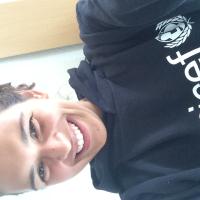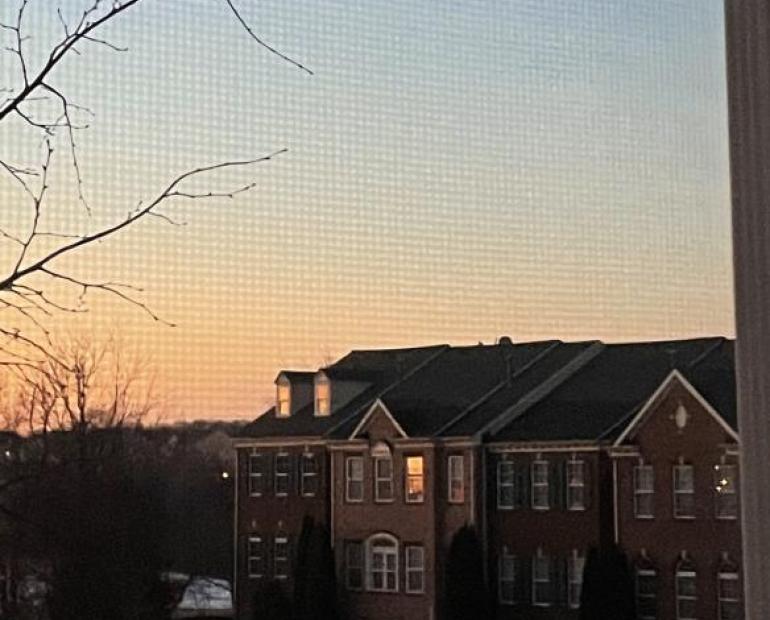
What does it mean to be a binational…
On a regular basis, I used to ask myself the question: where do I belong? And where am I at home? “Home” in terms of the place where I feel secure, comfortable, and most importantly accepted and loved. I always came to the same sad and disappointing answer: I belong nowhere.
Now you might ask yourself why I thought about it so pessimistically…so let me explain myself!
I am a binational. My mother is German and my father is Lebanese. I was born in Germany but visit my family in Lebanon every year during the summer holidays. Nevertheless, I have the feeling that I do not belong to either of the two countries. I feel like a stranger, or better like a strange creature, in both of them. Do not understand me wrong here; I am happy in both countries as I have family and friends in both, but I simply feel that I am not always understood - not because of language barriers but content wise. During conversations, I often have the impression that we talk at cross purposes.
Already as a child, I discovered that I am different because of my binational background. Both my parents have taken great care and have made it their mission to teach me both languages, raise me in the presence of two religions and familiarize me with both the German and Lebanese culture. Therefore I think, talk and feel differently. I have different perspectives, aims, wishes and beliefs than most of my fellows.
It was, and is also, not rare that I am confronted with painful stereotypes, not only from strangers but also from classmates, friends, family and acquaintances. In Germany I am asked (by people who have known my family for almost 10 years!): Does your father hit and rape you? Will your family choose a groom for you? And hey Ali (my nickname for years) where have you hidden your bomb? Is it true that all Muslims are aggressive and want the West to suffer? In Lebanon: In Germany, the people have no honor, right? Are the people really that egoistic and egocentric? They think that they are better and more intelligent than us, don’t they? I would discuss this for hours, defending either the Germans or the Lebanese. I would have the best examples and arguments… but the person opposite me would simply not understand what I meant! This often kept me frustrated, sad and insecure. And it simply hurt to hear how the people talk about a part of me … I can’t deny or hide the fact that I am both German and Lebanese and that I love and feel bonded to both cultures and countries.
As I was still younger I always asked myself: So what should I do to be accepted? Should I adapt? I could … but then there would be another question to answer: to whom? Should I think, talk, eat, pray and live the same way as the people in Germany? Or those in Lebanon? Should I listen to the same music, wear the same clothes and read the same books? Or should I always adapt depending on the country I am currently in? I could choose any of those possibilities. But would I be happier then? Probably not as I would be living a big lie.
Instead, I have decided to keep true to myself and live the way that I want and that I think is right – surely only to the point where I do not harm or hurt others. I have also made it my mission to live as a good example to others. Through my actions and conservations, I show the people that their stereotypes – that are sadly often deeply-rooted into society – are not true. I have even come to love uncomfortable confrontations in which I can prove people with their ridged beliefs wrong… changing someone’s mind is always a victory and simply feels great!
Even if it is hard to be a binational sometimes I have come to love it and see it as a privilege. Through my binational upbringing, I had the opportunity to gain a greater spectrum of perspectives and ways to see the world. I am certain that the way my parents raised me has made me a more open, optimistic, and tolerant person. Now I think differently than when I was younger: I am not at home anywhere, but I am at home everywhere. I am international.
So to all binationals: keep your heads up, be patient with your fellows, and most importantly keep true to yourself. Don’t hide your passions, beliefs, and ideas out of the simple fear of being misunderstood or excluded. Make it your mission to be an ambassador for acceptance and tolerance, by showing people all of your facets.






